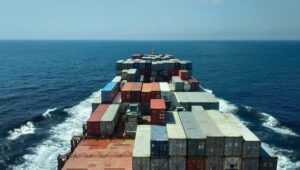European directive means municipalities must start selectively collecting textile waste
The entry into force of the European directive, making municipalities selectively collect textile waste, is scheduled for three days’ time. Recycling companies anticipate difficulties in responding and are worried about the increase of fast fashion, writes Lusa.
From January 1, municipalities will have to ensure a system for the selective collection and recycling/ reuse of textile waste – a scenario that, although not new for some of them, promises, according to the companies contacted by Lusa, to require an increase in response capacity.
Based in Gondomar, in the district of Porto, Wippytex has been in the textile recycling market since 2008, currently working with 30 local authorities, including town halls and parish councils, from Viana do Castelo to Lisbon.
To do this, the company places textile collection containers – known as “roupões“ – on the streets, following the circularity system which determines that a small part is reused and the majority is recycled, company director, Luís Fernandes, explains.
“As for recycling, we transform it into new products: cleaning cloths, absorbent pads and new yarn,” he explained, noting that in the case of cotton, “after it is collected from the T-shirts, it is defibred and sent to make recycled yarn”.
According to Fernandes, in 2023, Wippytex collected around 3,000 tonnes of material. These figures will certainly grow in 2024, driven, he believes, by greater consumption of fast fashion.
“The percentage that goes to incineration is around 10 %,” he said, warning that the sector “is going through a crisis” caused by “market saturation”, which “no longer has room to recycle”.
“Many associations moving within the European Union say there is a pre-collapse in this sector“, he said, stressing “we don’t know if we’re going to be able to recycle all this textile waste.”
Fernandes used figures to clarify his fears: in 2023, according to a report by an association in the sector, 32 million tonnes of cotton were taken from nature, and only 317,000 tonnes of natural recycled cotton fibres were incorporated.
In business since 1952, Sasia – Reciclagem de Fibras Têxteis works directly with companies in the area of pre-consumption, recycling around 2,000 tonnes of material every month, director Miguel Silva told Lusa.
“We have state-of-the-art machinery. We’re relatively prepared to increase the amount that results from applying the 2025 standard because a large volume of post-consumer material will appear on the market. Still, it won’t be right away,” warned the head of the company based in Ribeirão, in the municipality of Vila Nova de Famalicão, in the district of Braga.
According to Miguel Silva, municipalities’ entry into the equation will initially have nothing to do with the company’s normal activity. It will be up to the municipalities to select the products to recycle, so Sasia will only intervene when it gets to the recycling stage.
Affirming his conviction that “fast fashion” will continue “because companies want to manufacture for themselves and as long as they have a market they won’t stop”, Silva acknowledged that the future could involve “manufacturing more sustainable, environmentally-friendly materials and incorporating recycled fibres into these products, which is what the end customer asks for, and which brands can incorporate”.
The company is involved in “many circular economy projects” to pave the way for sustainability, he said.
“We are taking part in international projects to study new applications for this post-consumer waste that will appear on the market in quantity. The next phase will be to scale up the quantity appearing on the market and its function”.
Silva also revealed that projects under development are studying “construction applications, for acoustic insulation, and for the automotive industry“. These are, he said, “two applications that can consume large quantities of recycled textile material”.
LUSA


























